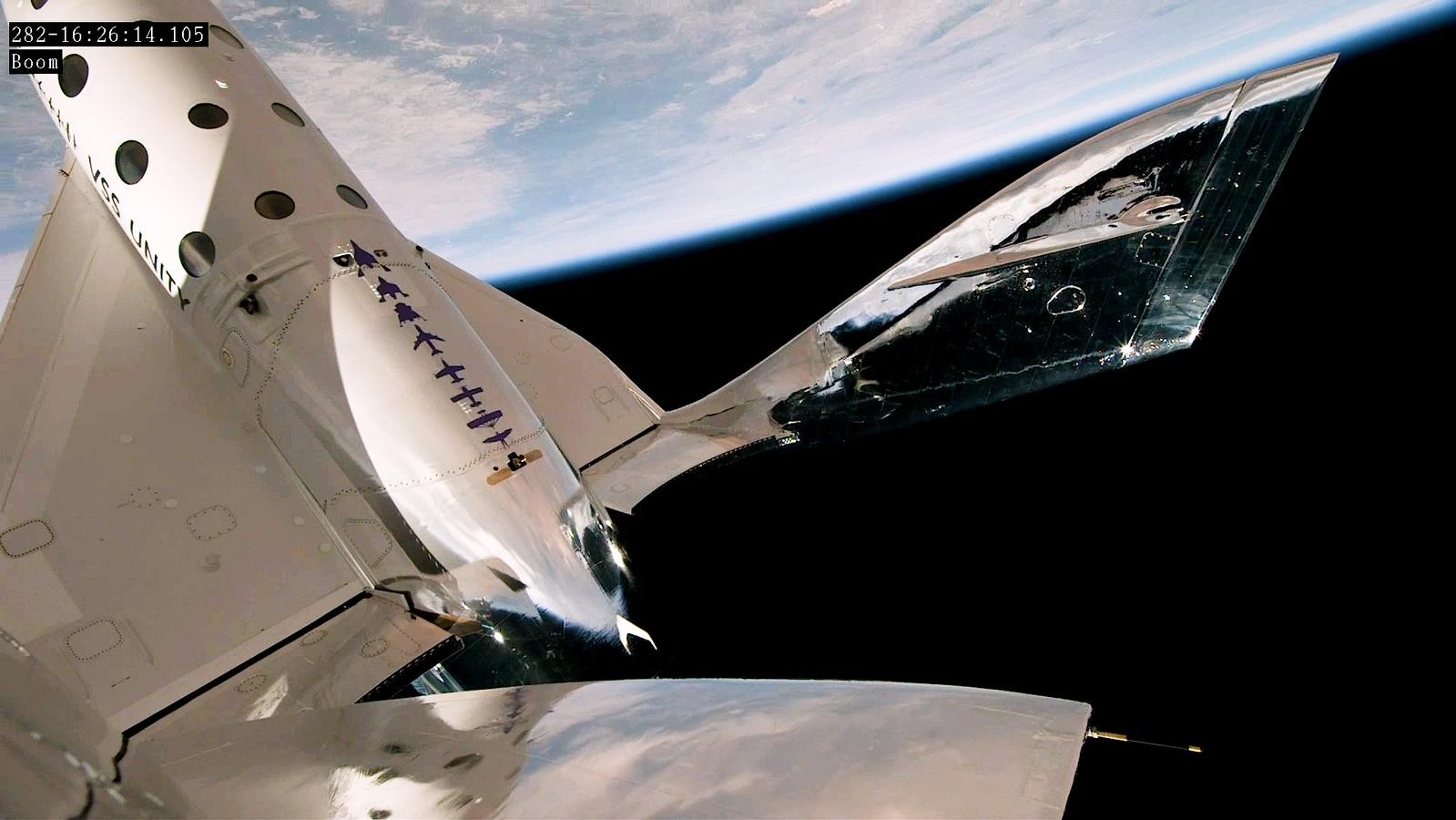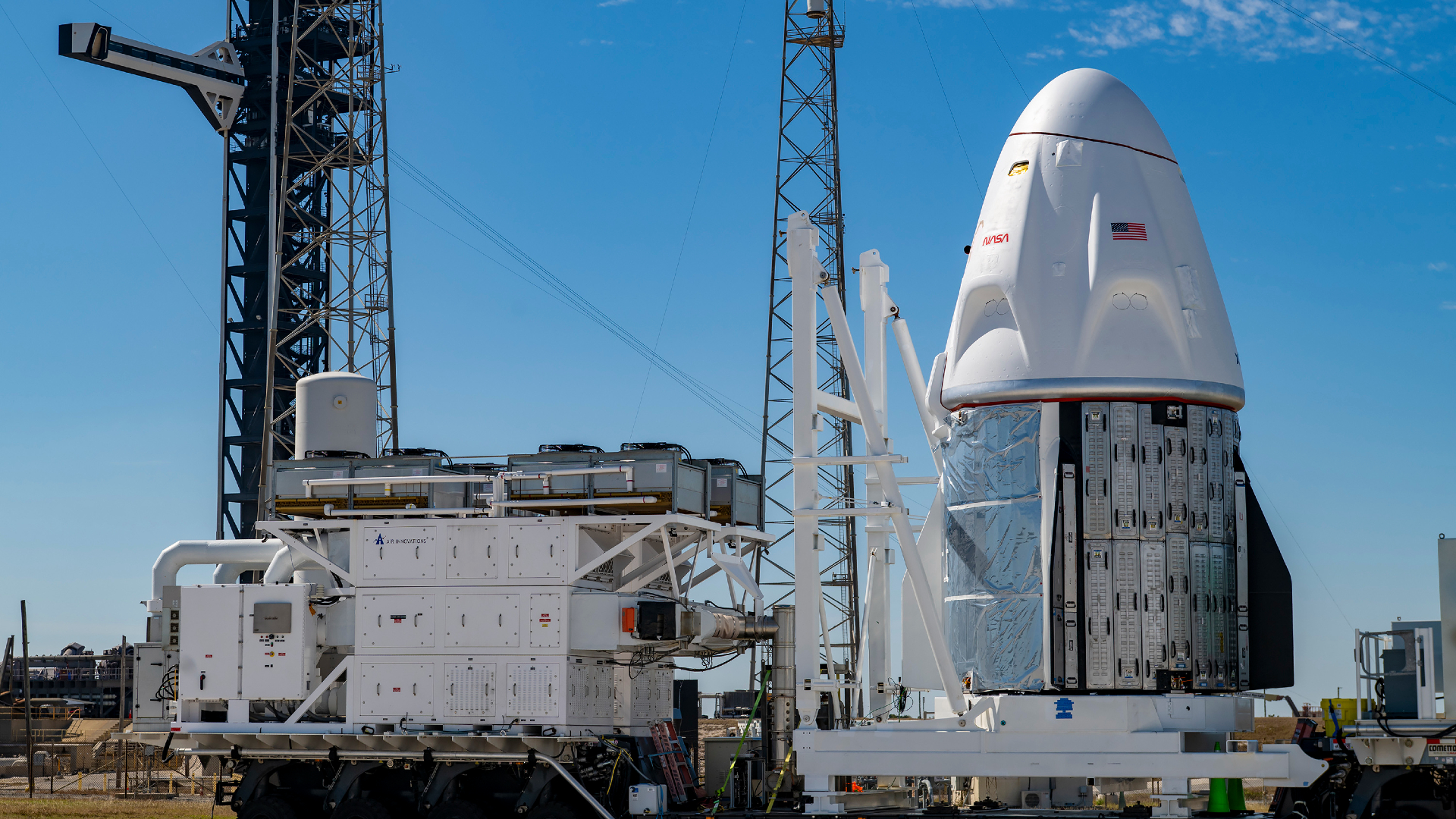Virgin Galactic will launch its 1st commercial spaceflight on June 27

Breaking space news, the latest updates on rocket launches, skywatching events and more!
You are now subscribed
Your newsletter sign-up was successful
Want to add more newsletters?

Delivered daily
Daily Newsletter
Breaking space news, the latest updates on rocket launches, skywatching events and more!

Once a month
Watch This Space
Sign up to our monthly entertainment newsletter to keep up with all our coverage of the latest sci-fi and space movies, tv shows, games and books.

Once a week
Night Sky This Week
Discover this week's must-see night sky events, moon phases, and stunning astrophotos. Sign up for our skywatching newsletter and explore the universe with us!

Twice a month
Strange New Words
Space.com's Sci-Fi Reader's Club. Read a sci-fi short story every month and join a virtual community of fellow science fiction fans!
Virgin Galactic's first-ever commercial spaceflight will launch this month, if all goes according to plan.
The company, part of billionaire Richard Branson's Virgin Group, announced Thursday (June 15) that it has set a launch window of June 27 to June 30 for its debut operational flight, which it calls Galactic 01.
"Galactic 01, a scientific research mission, will carry three crew members from the Italian Air Force and the National Research Council of Italy to conduct microgravity research," Virgin Galactic representatives said in a statement released Thursday afternoon.
"With scientific payloads on board, the spaceflight will showcase the value and power of the unique suborbital science lab that Virgin Galactic offers," they added.
Photos: Virgin Galactic's 1st fully crewed spaceflight with billionaire Richard Branson
Virgin Galactic's suborbital spaceflight system consists of two elements: a carrier plane known as VMS Eve and a six-passenger, two-pilot SpaceShipTwo space plane called VSS Unity.
Eve lifts off from a runway with Unity under its wings, then drops the spaceliner at an altitude of about 50,000 feet (15,000 meters). Unity then fires up its onboard rocket motor, powering itself to suborbital space.
Breaking space news, the latest updates on rocket launches, skywatching events and more!
Passengers aboard the space plane are treated to a few minutes of weightlessness and get to see our planet against the blackness of space. Unity then glides its way back to Earth for an unpowered runway landing.
Unity has flown five test missions to suborbital space, most recently on May 25. That latest flight was Virgin Galactic's first space jaunt since July 2021; the company grounded Unity and Eve for a while to perform maintenance and upgrade work that prepared both vehicles for the increased flight rate of commercial service.
And Unity and Eve are indeed scheduled to fly again shortly after the commercial debut: The second operational flight, Galactic 02, is "planned for early August, with monthly commercial flights thereafter," Virgin Galactic wrote in Thursday's update.
These missions will launch from Spaceport America in New Mexico, Virgin Galactic's commercial hub. If you're interested in booking a seat, you'll need deep pockets: a ticket aboard VSS Unity currently costs $450,000.
There will be many more chances to fly in the not-too-distant future, for Virgin Galactic is building a fleet of new "Delta-class" space planes that the company says will be capable of launching once per week. These new spaceliners should start coming fully online in 2026, Virgin Galactic has said.
Virgin Galactic isn't the only company that takes paying customers to suborbital space; Blue Origin, Jeff Bezos' spaceflight company, does so as well with its New Shepard vehicle. New Shepard hasn't launched since September 2022, when it suffered an anomaly during an uncrewed research flight.

Michael Wall is a Senior Space Writer with Space.com and joined the team in 2010. He primarily covers exoplanets, spaceflight and military space, but has been known to dabble in the space art beat. His book about the search for alien life, "Out There," was published on Nov. 13, 2018. Before becoming a science writer, Michael worked as a herpetologist and wildlife biologist. He has a Ph.D. in evolutionary biology from the University of Sydney, Australia, a bachelor's degree from the University of Arizona, and a graduate certificate in science writing from the University of California, Santa Cruz. To find out what his latest project is, you can follow Michael on Twitter.
